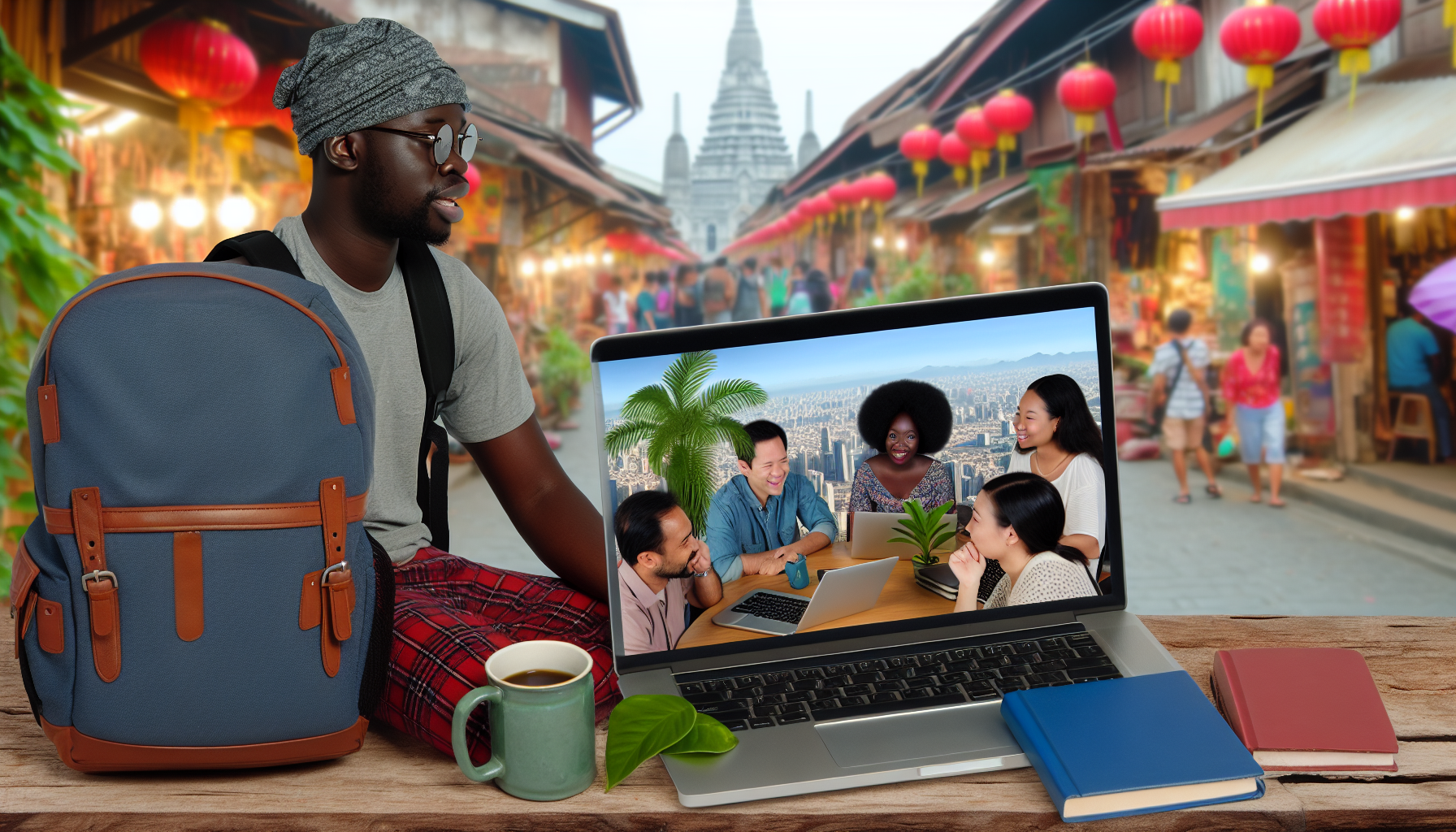How to Deal with Culture Shock as a Digital Nomad
The allure of the digital nomad lifestyle is undeniable. Imagine sipping fresh coconut water by the beach while cranking out your latest project or discovering the culinary wonders of a new city every month. Yet, behind those Instagram-worthy moments, there’s a common challenge digital nomads face: culture shock. Adapting to a new culture can be exhilarating but also daunting. It’s essential to navigate this transition smoothly to make the most out of the nomadic experience.
Key Takeaways:
- Understand and acknowledge culture shock.
- Embrace the learning curve and immerse yourself in the local culture.
- Build a support network of fellow travelers and locals.
- Stay patient and open-minded toward differences.
- Use practical tools and resources to help with the transition.
Understanding and Acknowledging Culture Shock
Culture shock isn’t just about feeling out of place. It’s a four-stage process: the honeymoon phase, frustration, adjustment, and acceptance. Recognizing which stage you’re in is the first step to coping effectively. As travel enthusiast Rick Steves says, “The best measure of a culture is its treatment of strangers.”
Embrace the Learning Curve
Every new culture comes with its own set of quirks, traditions, and social norms. Instead of resisting these differences, embrace them. Attend local festivals, learn the language basics, and participate in community activities. Personal example: when I arrived in Thailand, I initially found the concept of the Wai (a traditional Thai greeting) unusual. However, after learning its significance, it became a daily ritual that made me feel more integrated into the community.
Build a Support Network
Isolation can intensify culture shock, so building a support network is crucial. Connect with fellow expats through social media groups, co-working spaces, or local meetups. These networks provide invaluable advice, shared experiences, and a sense of belonging. According to cultural psychologist Dr. Colleen Ward, “Intercultural friendships play a critical role in facilitating cultural adaptation.”
Staying Patient and Open-Minded
Patience and open-mindedness go hand-in-hand when navigating a new culture. Not everything will make sense immediately — or ever, for that matter. A local custom might seem bizarre or even frustrating, but approaching it with curiosity rather than judgment can turn confusion into a learning experience. Personal example: In Japan, I initially struggled with the quietness in public places. Over time, I grew to appreciate the cultural respect for personal space and silence.
Practical Tools and Resources
There are plenty of resources designed to make cultural adaptation easier. Language apps like Duolingo can help break the communication barrier. Websites like Meetup and Couchsurfing offer opportunities to meet locals and other travelers. Additionally, using travel blogs and vlogs can give you a heads-up about what to expect in your new location.
Comparing Important Aspects of Culture Shock:
| Aspect | Observation in Asia | Observation in Europe | Observation in South America |
|---|---|---|---|
| Social Interaction | Reserved and respectful | More open but formal | Warm and expressive |
| Food and Dining | Diverse and often communal | Rich in tradition and variety | Generally communal and lively |
| Communication Styles | Indirect, contextual | Direct and explicit | Expressive and passionate |
| Work Ethic | Hierarchical and disciplined | Collaborative | Flexible and relationship-focused |
Living or Experiential Tips
- Learn the Local Language: Even basic phrases can go a long way in breaking the ice.
- Respect Local Customs: Research beforehand and be mindful of cultural norms.
- Stay Flexible: Plans might change due to local holidays or customs. Embrace the unpredictability.
- Pack Adaptable Clothing: What’s acceptable attire can vary greatly from one country to another.
- Stay Healthy: Different foods and climates can affect your body. Stay hydrated, and don’t skip meals.
Summing up the experience, dealing with culture shock as a digital nomad involves a blend of awareness, patience, and proactive engagement. Dive into the unknown with both feet and embrace the vibrant tapestry of experiences your journey promises. If you’d like to delve deeper into cultural adjustment, consider reading “The Art of Crossing Cultures” by Craig Storti or visiting the International Society for Intercultural Education, Training and Research (SIETAR).
Source Links:
- Rick Steves
- Dr. Colleen Ward’s Research
- International Society for Intercultural Education, Training and Research (SIETAR)
FAQ
Q1: How long does culture shock typically last?
A: The duration varies for each person, but it generally lasts from a few weeks to several months. Adapting fully might take up to a year, depending on the individual and the complexity of the new culture.
Q2: What are some signs that I’m experiencing culture shock?
A: Common signs include frustration, homesickness, depression, irritability, and a sense of disorientation. If you notice these symptoms, it’s important to acknowledge and address them.
Q3: How can I prepare for culture shock before traveling?
A: Research extensively about your destination—its customs, social norms, and language. Connect with expats who live there, read travel blogs, and consider learning some basic phrases of the local language.
